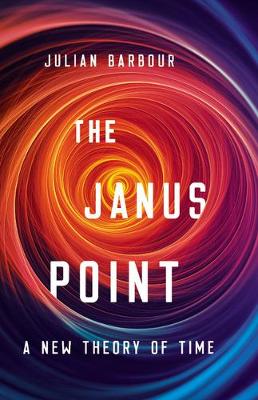
In a universe filled by chaos and disorder, one physicist makes the radical argument that the growth of order drives the passage of time -- and shapes the destiny of the universe.
Time is among the universe's greatest mysteries. Why, when most laws of physics allow for it to flow forward and backward, does it only go forward? Physicists have long appealed to the second law of thermodynamics, held to predict the increase of disorder in the universe, to explain this. In The Janus Point, physicist Julian Barbour argues that the second law has been misapplied and that the growth of order determines how we experience time. In his view, the big bang becomes the "Janus point," a moment of minimal order from which time could flow, and order increase, in two directions. The Janus Point has remarkable implications: while most physicists predict that the universe will become mired in disorder, Barbour sees the possibility that order -- the stuff of life -- can grow without bound.
A major new work of physics, The Janus Point will transform our understanding of the nature of existence.
Intriguing Theoretical Astrophysics. If it wasn't clear from the description of this book, this book is *all about* theoretical astrophysics and the author's new theory of the origins and nature of time. If words like Newtonian and General Relativity and Leibniz and thermodynamics are part of your every day lexicon, you'll probably enjoy reading this. For the rest of us... at least there isn't much math involved in the actual text here? Specifically of the Calculus variety, which gives even many math-oriented people the heebie jeebies? Truly an intriguing work, but I'll be the first to say that I didn't fully follow or comprehend all of it - it is simply that high level. Even though Barbour tries to use narrative examples and structures designed to allow most anyone to have some idea of what is going on, at the end of the day this is still advanced theoretical astrophysics, of the kind that even Stephen Hawking wrestled with. While others more learned in the actual science may find fault here, for what it is I could find none. Very much recommended.
Reading updates
-
Started reading
-
18 August, 2020:
Finished reading
-
18 August, 2020:
Reviewed
